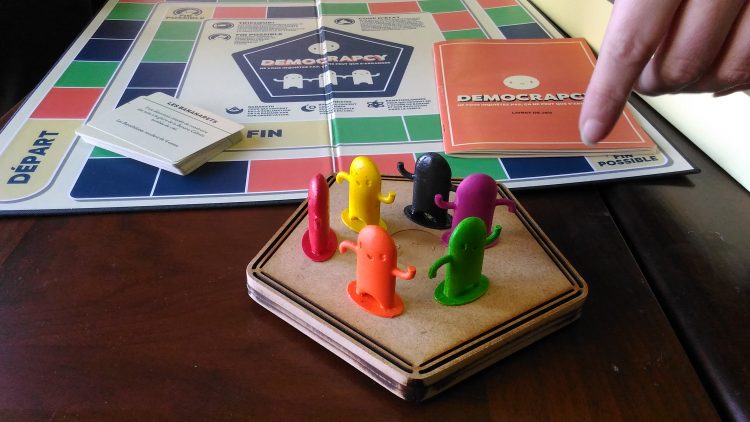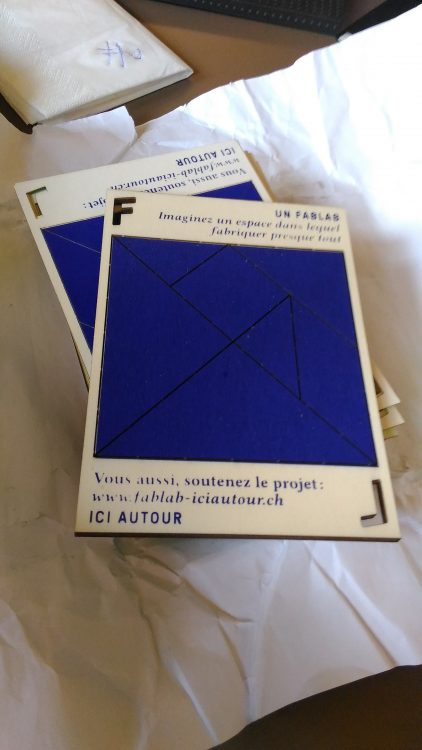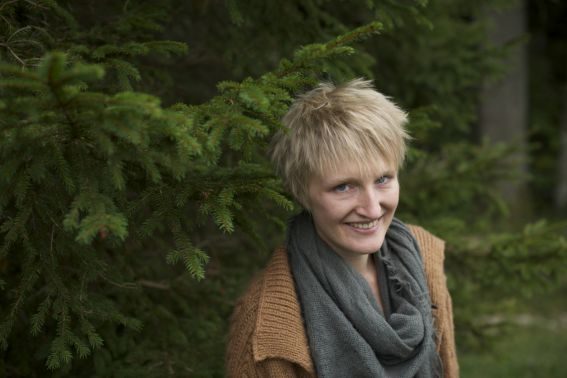Commitment mechanics in the land of clocks
Published 20 March 2017 by DCALK (Paris/Bruxelles)
From March 10-12 was held the 8th Ludesco, a festival around games at La Chaux-de-Fonds, in Switzerland. Between “murder party” and game booths, our columnists from Dcalk took part in a round table on committed games.
La Chaux-de-Fonds, correspondence
Even though we snickered when taking out of our black games library the excellent Secret Hitler and rubbed our temples to win a game against Manu Valls in Le Jeu de la ZAD (the future development zone game), the question remains: what is a “committed board game”? What are its contexts, its edition formats, its objectives? Fortunately, we were not alone to provide answers. This poser was given to us during a round table by Loïc Hans, one of the organizers of the Swiss festival for games and fun experiences Ludesco, that held its 8th edition in La Chaux-de-Fonds, from March 10-12, 2017, and claimed 3,700 festival-goers.

Around the table, the association Underconstruction, the games and activity kits of which, under free license, borrow as much from the serious game as from popular education techniques, Aurélien Lefrançois, a Swiss knife of game design who one sees in committed Parisian initiatives such as Jeux Debout or Game Impact, and the Swiss Mélissa Pisler who presented the Democrapcy project.
Play to learn democracy
It was during a “game design & serious game” workshop in October 2015 at the High School of Art and Design in Geneva (the HEAD where Mélissa studies) that the prototype was developed. The Swiss chancellery proposed to students to imagine a game of awareness about the four annual elections for the young public. The prototype Democrapcy was retained and reworked on in 2016 under the watchful eye of the school teachers (Nicolas Nova, Etienne Mineur, Douglas Stanley). It was then presented in the wake of Volumique Editions during major events in the edition of board games (Cannes, Essen). We hope to find Mélissa and her Democrapcy during a “game and politics” session, special first round of the French presidential election, next April 23 in Paris.

Associative magma
For a first trip to La Chaux-de-Fonds, one can say we found ourselves in a great associative magma, put up by the LAC, creation self-managed laboratory where a collective supporting a fablab project is busying itself. Still in the proposal stage, Ici Autour (Here Around) already takes in a number of curious people in this town with a laborer and autonomous past. We just had time to meet Hélène Carrel, one of the instigators of the project.

Design engineer trained at the Haute Ecole ARC of Neuchâtel, she adopted the fablab of the school focused on engineering and micro-technology. A native of La Chaux-de-Fonds, she would like to develop a local project at the service of her town. She thus brought together the energies and carried out several actions outside to mobilize, design and promote the idea, with a main core of about ten people. Counting 400 supporters today, the collective is pursuing its promotion campaign and hopes to find premises at the start of the school year.
We are awaiting news hoping to visit soon this hybrid place that brings together builders, decorators, graphic designers, designers, artists, DIYers but also clockmakers! Like Roman Winiger who is working on open source precision mechanic kits grouped under the collective Openmovement.
See the columns of Dcalk, association promoting games as cultural objects in particular via the Ludobox project.
